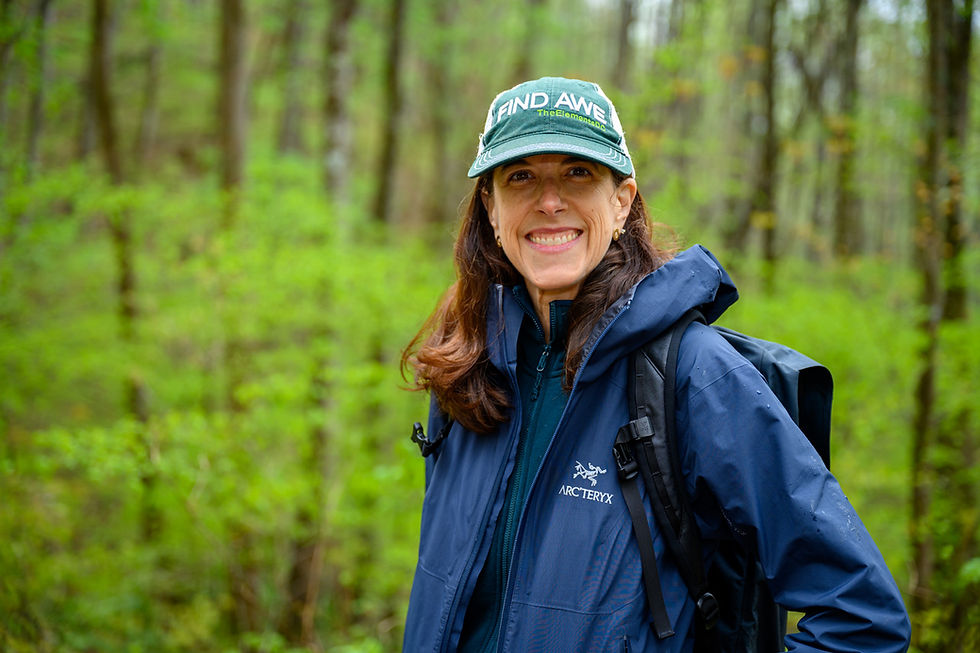Trouble Sleeping? Research Reveals Backpacking Synchronizes Internal Circadian Clock
- hikingresearch
- Aug 3, 2013
- 2 min read
Spending time in nature offers many health benefits, but did you know it can impact the quality of your sleep? Living in modern urban environments that are washed in artificial light adjust our circadian clock, which tells our body when to prepare for sleep and when to prepare for wakefulness, impacting when and how well we sleep. Lack of sufficient sleep has been linked to many health and safety issues.

View from Devil’s Courthouse at Whiteside Mountain (Highlands, NC, USA). Photo by Mark Ellison
A study by University of Colorado at Boulder researchers published in the journal Current Biology found that people go to bed earlier and get up earlier when removed from sources of artificial light. The study was led by University of Colorado integrative physiology professor Kenneth Wright, and compared the timing of eight individuals’ circadian clocks when camping in wilderness, to their circadian clocks in typical everyday environments, as indicated by their changing levels of the hormone melatonin.
Wright took a group of eight campers on a week-long backpacking trip in Eagles Nest Wilderness near Dillon, Colorado.The only light the group was exposed to besides the sun,moon and stars, was a campfire. The results of the study revealed that participants biological night times started two hours earlier when on a backpacking trip in comparison to when they were in settings that had electrical lighting. Participants also woke up before their biological night had ended when they were going about their normal lives.
Study participants wore wrist monitors that recorded the intensity of light they were exposed to, the timing of the light, and their activity, which allowed researchers to determine when they were sleeping. This revealed that participants received approximately four times more light on the backpacking trip in comparison to normal daily activities. Lux is a standard measure of light, and one lux is the amount of light produced by one candle, with standard indoor lighting emitting 200 Lux. In comparison, a sunrise or sunset has approximately 10,000 Lux, and mid-day light in Colorado is approximately 100,000 Lux.

View from Siler’s Bald on the Appalachian Trail (North Carolina). Photo by Mark Ellison
There are many ways we can increase our exposure to natural light on a daily basis. Enjoy breakfast outside or spend some time in the flower garden in the morning. Take breaks during the work day outside, or go on short walks. Have walking or hiking meetings during the workday instead of sitting in a conference room. In the late evening, go outside to look at the stars and moon, and soak in the peace that if offers. We should also find ways to increase natural light sources in our home and work environments. This research builds on other researcher studies that have linked improved levels of satisfaction and well-being with having a room with a view of nature.
This also points to the need to reduce exposure to artificial light sources, especially in the hours immediately before going to bed. Try to dim lights a couple of hours before sleeping, and stop using the computer or watching tv at least an hour before going to bed. It will also help to have the room you are sleeping in free of light.
Most importantly, spend time outside. Your sleep, and health depend on it.








Comments